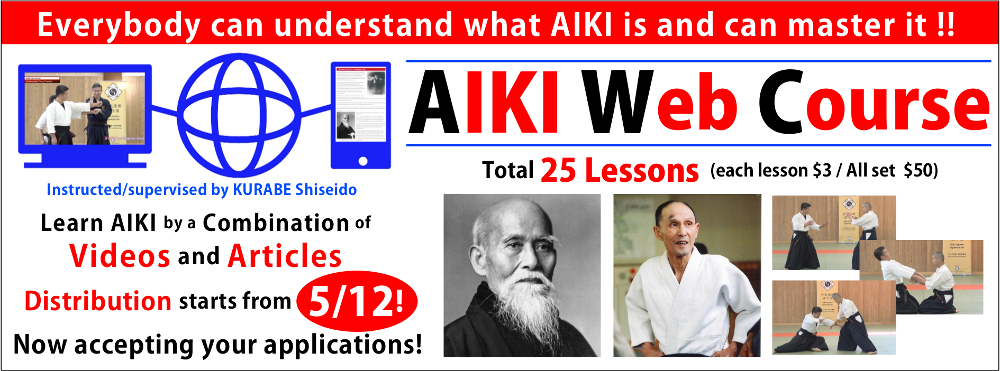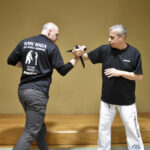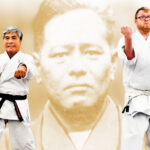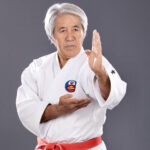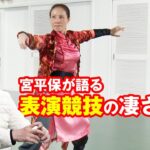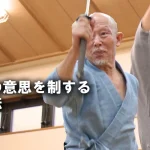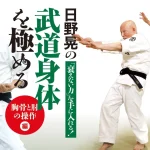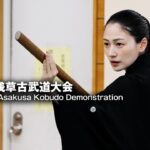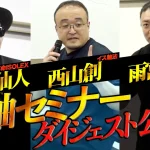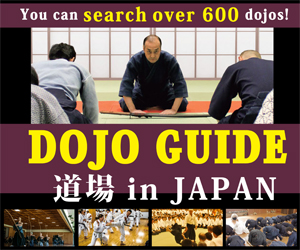A. strained interpretation described in HAGAKURE or BUSHIDO written by Inazo NITOBE
12 years ago in Amsterdam, I had a chat about Bushido with one middle aged single Japanese man whom I knew through Budo activity. He started talking that Bushido is superior to European Kishido (Knight Spirits) because of the fact that Bushido does not allow revenge except the case only superior person to him is harmed. According to him, Samurai can and should execute revenge only if his master or parents are harmed. In case his wife or kids are harmed, he should bear the pain.
I felt only such a man who has no his own family and does not know nor understand how they are important for him, could say such silly things, so I expressed my doubt on his definition on Bushido. Then he took one book from his book shelf and showed me one page in it. It has the title BUSHIDO written by Mr. Inazo NITOBE about a century ago and that exact definition is described in that page he showed me.
I stopped further discussion with him, because I found him a quite silly person because he took the definition as true which was done by a famous person without any doubting.
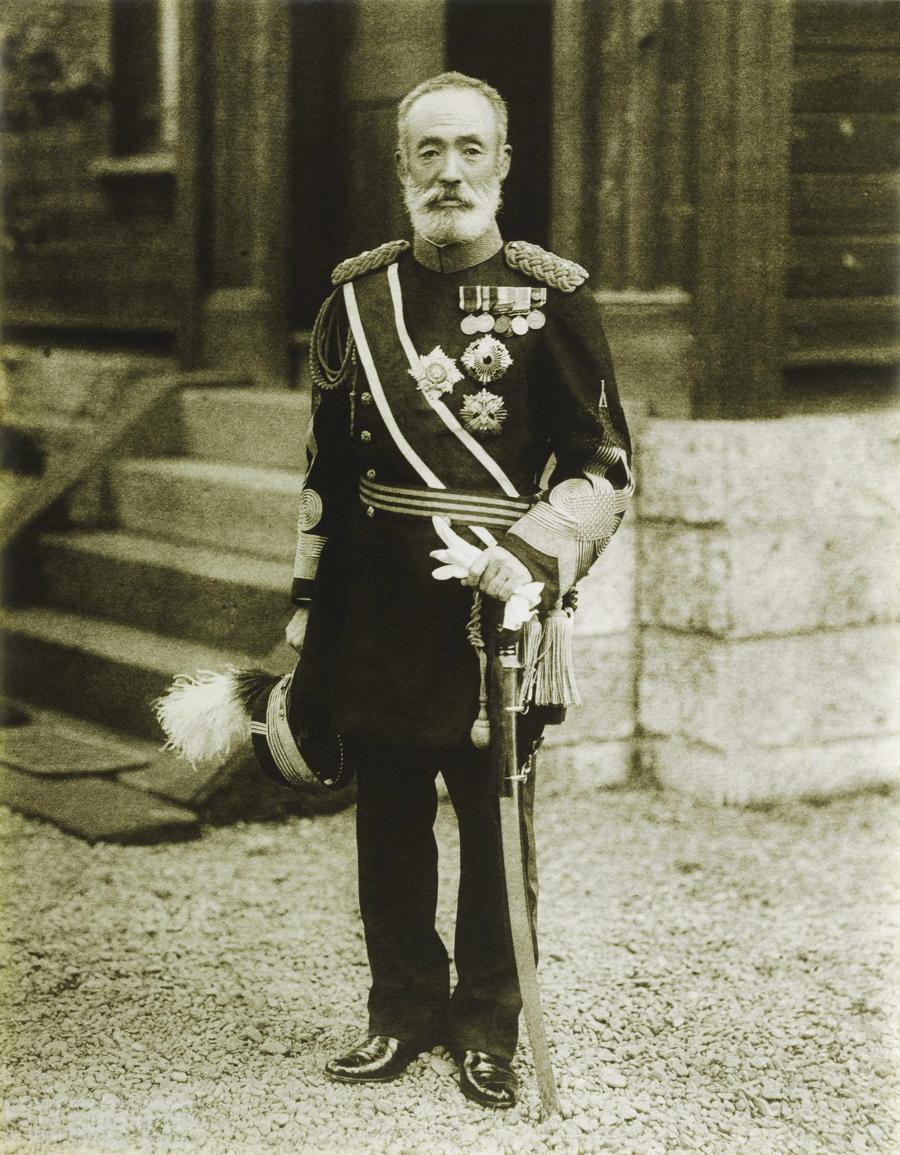
Count Nogi Maresuke
Years later I noticed that the same story was talked by a famous person, who fought Japan-Russia war as a general, named General NOGI. When he was young he stayed in France as despatched officer. In one party he had a chance to discuss about European Knight Spirits and Japanese Bushido. He told the exact same story and the other French officer could not continue discussion. That book said because French officer admitted Mr. NOGI’s insists. But I cannot agree that conclusion. I guess that French officer felt same way as I had and abandoned further non-sense discussion.
It is often said and most of the case it is true that the society is highly cultivated where people are educated to behave different ways than animal low. In such society, for instance, weak people like poor or physically handicapped are treated fairly. So, a society where rich people or physically strong people are allowed to behave as they like to do is very primitive society. I wonder how our Japanese society is, where women are discriminated and handicapped people cannot go out from their own houses because of too many physical barriers and mental discrimination.
There is one quite interesting episode about one experiment. There are many men who are married and have child were gathered from many different nationalities in one place and requested to answer one question as below.
“If you and your family encountered a disaster and you could save only one person in front of you, whom you save? Your child, wife or mother? “ Most of the answer was “save child” with small exceptions as “save wife” But among all the participants, only Chinese man answered “save mother”.
What a big surprise, it is quite normal for Chinese men to value their own mother as first priority. In Chinese society men are raised by the same teaching by mother from their child food that they can get new wife and make child again, but there is no substitute for their own mother.” For a mother side she takes it quite normal that she is saved instead of her own ground child. This caused a big shock to all the other people.
I have one Chinese friend and I asked the same question to her. Her answer was the same as expected. So I asked her another question.
“You are married with Dutch man. So, if he saved his mother instead of you or your child, what is your reaction? “
Her question was,
“I never ever allow him to do so.”
Then I asked her again.
“So when you get a boy, how you raise him up? In European way or Chinese way?”
Her answer was again as expected,
“Of course in Chinese way so that he shall always thinks me as most important.”
It is basic instinct as “animal” to save child first, and Chinese had changed it by long historical education to behave differently. But do we still acknowledge that this Chinese way is superior to the other human standard ways? I say “NO”.
There is another example. Several years ago I watched a movie titled “Kill Order” produced by MIFUNE production. The movie described a Samurai’s story who resisted his master’s non-sense order and was killed. He was forced to marry with one of his master’s mistresses as “a present”from his master. His master was bored with that lady and wanted to get rid of her from his harem, so he gave her to one of his men as his ‘present”. All his family include him were not happy at all with that “present” but they had no other option except just accept with a expressing big pleasure and honour.
After several years passed, this couple had started love each other because the lady was a gentle and mild hearted woman to pay a deep respect to her husband. But so suddenly the husband received an order to give her back from his master. He loved his wife so much and he consulted with his father and brothers what he should do, because he worried if he does not obey the order not only he but complete family members might be killed. His family all agreed to take human honour first and to fight against the brutal order. As a result his master sent a troop to kill this family all. Every family members from young boy to old man fought and died.
In this movie, it is described that the real Bushido is the way that Samurai and his family showed by refusing their master’s order and kept honour. This is fully different than the Bushido described in the books as HAGAKRE or BUSHIDO which was written later than TOKUGAWA époque.
B. Original Meaning of Bushido
Originally Bushido means completely differently till starting TOKUGAWA époque.
Before TOKUGAWA Shogun family started ruling Japan, there were long lasting wars all over Japan, to win and survive or to lose and ruin. Bushi had to fight against their enemies for putting his and his family’s life. Every day they had to struggle to survive. For them the first most important priority was not their master but to keep their family’s living. If their master was stupid and hopeless, the neighbour countries invade and they lose their land and way of life. In such situation they did not hesitate to change their masters if it was really necessary. If such case happened, their stupid master was blamed but not them.
Of course they had strong honour ships. Many times they fought even they knew they could not win but just for honours to support their respectable masters. Honour could become higher priority that keeps living. In such period they were called as Bushi, means fighting worrier. But after TOKUGAWA époque had started, all wars were totally stopped. Bushi were no need to fight for their life any more. To keep their family life, they should only protect their master from being blamed by TOKUGAWA Shogun because of miss done etc. That was the only case their country was closed by the order of Shogun. Otherwise their living was promised to be kept eternally.
So, to keep their family life Bushi should only to protect their master. Even that Bushi sacrifice his life for the master, his family could keep life. In this way their profession was changed from a Bushi(means worrier) to Samurai (means servant). To strengthen this concept by providing moral back ground, the ruler started to make strained interpretation onto Bushido. In this intentionally distorted Bushido, Samurai were forced to sacrifice their lives only for their masters. Before this intentional change occurred, there was no difference between Japanese Bushido and European Knight Ships.
As a conclusion till here, I dare say that the “Bushido” introduced to European society by books HAGAKURE and BUSHDO written by Mr. NITOBE is not the real Bushido. It was distorted concept by ruler’s special intention to benefit themselves. We have original Bushido which is quite similar to European Knight ship and we are very proud of ourselves to have it.

Mr. Inazo NITOBE
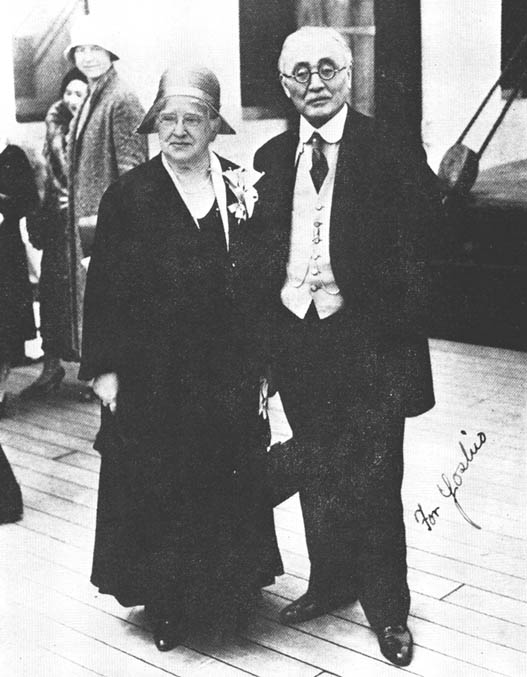
Mr. NITOBE with his Wife
C. Books to be recommended to understand what Bushido is

MIYAMOTO Musashi
There are unfortunately only few books about Bushido which are translated in English, like the wrong examples as HAGAKURE or BUSHIDO by Mr. NITOBE. Among those limited numbers of the Bushido books, I do recommend one book titled “MIYAMOTO Musashi” written by Mr. Eiji YOSHIKWA. Based on the really existed Bushi called the same name, Mr. YOSHIKWA described the Bushi’s way of life. Musashi lived from War époque till beginning of TOKUGAWA Shogun époque. He started his carrier as a worrier fought against TOKUGAWA family and fortunately could survive the combat. Without serving master, because he was the lost side, he started a new carrier to become the strongest Kenshi (Bushi who can operate Katana well) in Japan. He continued more than 60 times death matches and won every time. At the end he was called saint of Kenshi and respected by all Bushi in Japan.
Mr. YOSHIKAWA tried to express what he believes as Bushido by describing Musashi’s stormy life. So, what Mr. YOSHIKAWA believes as Bushido?
It should be:
1) Keep strong objectives
For Musashi it was to become the strongest Kenshi in the world (Japan)
2) Keep strong honour ship
to live and fight fresh and vivid, never hesitate
3) Keep strong self-discipline
to load himself severe and hard self-training to strengthen self-discipline mind
4) Cultivate strong “Ki (awareness)” to survive from every combat
5) Independent mind
to respect God but never rely upon him
In the books those essences are described in several stories and they are surely quite impressive.
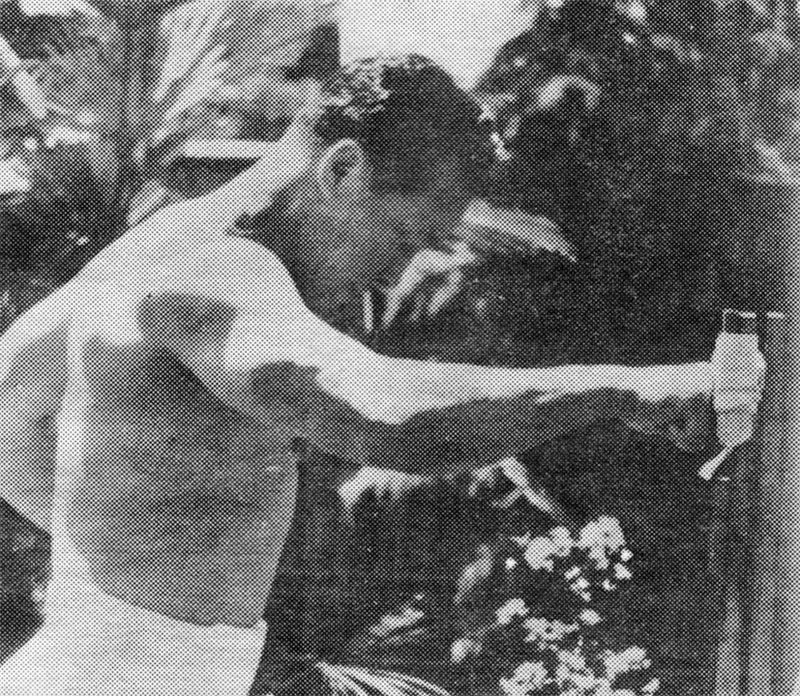
Master Masutatsu OYAMA
Master Masutatsu OYAMA, founder of KYOKUSHIN Karate, was one of earnest readers of this book MIYAMOTO MUSASHI. When he was young, he stayed in U.S.A. where he was spending time to fight against boxers and wrestlers. He carried this book close to him and always read when he was in the difficult situation. He tried to think over what Musashi should do if he was in the same situation and he could overcome every fight.
Not only this Master OYAMA, to all the persons who aim to achieve Budo spirits, the book MIYAMOTO MUSASHI shows clearly how to fight, when to escape and what to protect.
At the end of this article, I would like to express my thanks to Mr. Sean Leather, my Jujutsu student comes from U.S.A., for his big effort to have corrected my Japanese English to formal English.
Makoto KURABE – SHISEIDO
representative of
AIKI JUJUTSU GYAKUTE-DO
website: www.gyakutedo.org/wp
mail: apply@gyakutedo.org
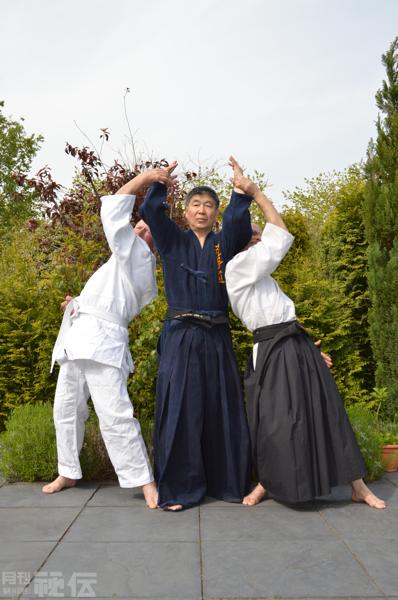 Text by Kurabe Makoto Shiseido
Text by Kurabe Makoto Shiseido
Born in 1950. When he was in his 30s, he began learning Gyakute-do Jujutsu, which was derived from Hakkoryu Jujutsu in the 1970s. Just before reaching the age of 40, he moved from Japan to The Netherlands and continued to master and develop Gyakute-do. In October of 2013, after adding the system of Aiki-Jutsu that he developed himself, he transformed Gyakute-do into Aiki-Jujutsu Gyakute-do, and became 2nd Soushi, grand master, of Gyakute-do. After retirement, he left The Netherlands and began promoting Aiki-Jujutsu Gyakute-do both in Japan and in Poland as his main pursuit. He is also teaching his Gyakute-do to Budo fan in the world via corresponding course.
You can read Original Japanese text here!
「武士道─本物の武士道が意味するものとは?」
A. 捻じ曲げられた武士道精神
葉隠れや新富稲造の解釈にみる支配者による捻じ曲げ
7年ほど前にアムステルダムで武道関係の商いをしている或る中年の日本男性と知り合い、その彼が日本の武士道に就いて語るのを聞いたことがあります。彼によれば「日本武士道では敵討ちは目上の人が殺された場合のみで、例えば自分の家内や子供が殺されてもその敵討ちを行うのは武士道に反する、敵討ちはあくまでも自分の仕えるお殿様や自分の親が殺された場合のみ。妻や子供など目下の者がひどい目に遭っても耐えて相手を許すのが日本の武士道精神。従って西欧の騎士道よりもその点で優れている」ということでした。
四十歳を過ぎても気楽な独身で自分の家族を持たず、従って妻や子供たちの愛しさ、大切さを身をもって感じたことの無い、そんな彼の口から発せられた言葉が随分と軽く感じられ、「本当にそれが日本武士道なのだろうか」と私は忌憚の無い疑問を発しました。すると彼は新富稲造が書いた本「武士道」を持ち出してきて、その一節を自慢そうに私に示しました。その本には確かに武士道がそのように描かれてはいましたが、それは単に新富稲造という一個人の解釈であって武士道を普遍的に定義するものではありません。有名人が描いた武士道をそれが普遍の定義と簡単に信じきって自分の考えを持たない浅はかさにあきれて、彼とはそれ以上の武道談義をする気が起きませんでした。
もっと有名な人が同じようなことを言っているのをずっと後で知りました。恐らく先の彼はこの話を知っていて自分の話のように私に語ったのでしょう。日露戦争時の203高地で日本陸軍第4師団を指揮した乃木大将です。彼は若い頃フランスで、同国の武官と欧州での騎士道と日本武士道の論議をした席で、「日本武士道は目上のものが屈辱を受けたり殺されたりした場合にのみ自らの命を掛けて復讐するが、目下のものであれば例え妻や子供でも、それを害した相手を許す寛容さを持っている。だから日本武士道のほうがそうでない西洋の騎士道より上等だ」といって、相手を言い負かしたそうです。これは言い負かしたというよりは、聞いた相手があっけにとられてそれ以上の論議を放棄した、と受け止めるべきでしょう。
人間が生まれつき持っている動物的な本能や習性を、道徳の力で矯正して本能や修正とは違う行動を取るようになった状態は一般的に高等なレベルにあるといえます。恐らく日本武士道のほうが優れていると評した乃木将軍の真意はそこら当りに在ったと推察します。 例えて言えば、権力者や力の勝る男性が威張り散らしているのは動物としての生まれ持った習性から何の進歩も見られない遅れた社会、力の弱い女性や身体障害者などの社会的な弱者がいたわられる社会は前者に比べると道徳的、文化的に遥かに進んだ高等な社会といえるでしょう。この観点からすれば日本は欧州から比べて文化的に遥かに遅れた社会といえます。男性が女性に対して威張っている社会は文化的に高いレベルにあるとは言えません。
しかしもう一つの例もあります。ずいぶん以前の話ですが、国籍の異なる人たちを集めて、「目の前で母親、奥さんそして子供が溺れていて助けられるのはただ一人だけという状況で、あなたなら一体誰を選ぶ(助ける)か」という命題を提示して、その答えに国民性の違いがでるかという実験が行われたことがあります。
日本人を含むアジアそして欧米の人たちが一番多く選んだのが子供、そして少なくはなりますが二番目が奥さんという答えでした。ところが一人だけ母親を選んだ人がいます。中国人です。なんと中国人は母親を一番大切にするのです。そして母親のほうでも嫁や孫でなく“自分が助けられて当然”と受け止めるのです。これは中国人以外にとっては驚きの事実でした。私にも中国人の女性の友人がいますので、彼女に同様の質問をしたところやはり同じ答えが返ってきました。“配偶者は死んでもまた得ることができ、子供もまた新しい配偶者と作れるが母親の代わりはいないから”というのがその理由です。因みに、彼女にはオランダ人のご主人がいますが、「ではご主人が中国人のように奥さん(つまりあなた)でも子供でもなく彼の母親を助けたらどう思うか」と尋ねたところ、「絶対に許さない」というまことに身勝手な答えが返ってきました。「でも生まれた男の子には中国式の教育をして、絶対に母親である自分が第一と思うように躾けてみせる」と彼女は引き続き自信ありげに語っていました。子供を助けようとするのは動物としての本能ですが、それを道徳で矯正して母親を助けるようにした中国の社会がこの点でそれ以外よりも優れているかといえば、絶対にそうではないでしょう。ですから乃木将軍の判断基準は必ずしも正しくありません。あくまでも場合によります。
武士の生き様を描いた三船プロダクション製作の東宝映画で、殿様から不要となった愛妾を無理やり押し付けられた武士の物語で「上意打ち」という作品があります。その侍は嫁を殿様から無理やり押し付けられたものの、その後お互いに真剣に愛し合うようになりました。しかし、しばらく経って殿様のほうの一方的な都合で結婚した妻を再び妾として召し上げられてしまうことになってしまいます。結局その侍は、無体な上意に逆らって愛する妻を手放さないことを決意し、殿様の差し向けた懲罰部隊と戦って、妻と一族郎党ことごとく抹殺されてしまいます。この作品では、あえて上意に逆らって皆殺しにされてまでも自分たちの意思を通した彼ら一族こそ、武士の一分を守った立派な武士として描いていますが、私もまったく同感です。
もともと武士は、平和が続き武士の本来の職務である戦争をする必要がまったく無くなった徳川時代の前までは、その後“葉隠れ”などで描かれた“殿様に無条件かつ盲目的に仕えて無体なことでも黙って命を差し出す”ことを教える徳川時代に作為的に作られた“武士道”とはまったく違う行動をしていました。戦乱に勝ち抜いて自分たち一族の存続を確保し繁栄させるのが第一番に重要な目的ですから、仕える殿様が無能であったり自分たちを害する残虐な人間であればさっさと見切りをつけて他所へ仕えたり、裏切って敵へ寝返ることも平気でしました。目的を考えればそれも至極当然です。その行為はきちんとした理由あってのことなので、決して卑怯とは非難されませんでした。
ところが平和が保証される徳川時代になって、そのまま官吏として穏便に勤めてさえいれば定まった収入が未来永劫保証される社会となり、武士たちはその本分である“死を覚悟で戦う”必要がなくなってしまいました。しかし武士は死をも厭わずに戦う覚悟が出来ていてこそ武士ですから、命をやり取りして戦うという“必死の覚悟”を維持させるための新たな行動基準がどうしても必要になりました。それで考案されたものが、「仕える主君に絶対服従し、命をかけて命令を全うする」という平和時の“武士道”だったのです。これはどんなアホでも殿様の家系に生まれれば、生まれてから死ぬまでずっと殿様でいられて好き勝手し放題という理屈に合わない現実を、一般の武士たちに受け入れさせる封建社会の道徳として、治める側には誠に都合の良い行動基準でした。
「武士道とは死ぬことと見つけたり」、“葉隠れ”に書かれた有名な一節です。「武士は仕える主君のため(だけ)に常に死を覚悟して必死で勤めなければならない」ことを教えています。こうして徳川将軍家が納める平和な時代にあって、武士たちは単なる官吏へと変貌することを許されずに、日本は世界でも珍しい“軍人が政治家と官僚・管理の全てを司る軍事国家”となったのでした。
此処での結論としましては、徳川時代に人為的に加えられていつの間にか主体となってしまった“主君への盲目の忍従”を取り去り、それ以前の姿に戻した元禄忠臣蔵に見られる赤穂浪士四十四士が体現したこの昔からの武士道こそが、日本人が世界に胸を張って自慢でき、今日の社会でも立派に通用する優れた行動基準だと確信します。“葉隠れに描かれ、新富稲造によって欧米に紹介された“武士道”は真の日本の武士道ではない“と固く信じます。
B. 武士道を理解するための本
英語に訳されて出版されている武士道に関する本の数はごく限られていますが、その中でただ一冊を挙げるとすれば私は間違いなく吉川英二著の「宮本武蔵」を挙げます。小説のモデルとなった宮本武蔵は戦国から徳川将軍時代にかけて生きた実在の武士で、幾多の強豪との生死を掛けた試合に勝ち抜き、老後は「五輪書」という自叙伝をかねた兵法書を書き、芸術作品としても評価の高い水墨画や彫刻を多々残した多彩な人でした。この宮本武蔵の生き方をモデルにして歴史小説の第一人者であった文豪吉川英二は、自分が理想とする武士の生き方を見事に描いています。勿論小説なので実在の宮本武蔵とはかなり異なる部分もあるはずですが、吉川英二が描く武士道を宮本武蔵という実在の武士を借りて表現したと受け止めればよいのです。
この小説で吉川英二が描く武士道とは、
1.強い目的意識を持つ -> 武蔵の場合は日本一の剣豪になるという意思。
2.強い美意識をもつ -> 鮮烈かつ潔さを旨とする生き方に徹する。
3.目的を達成するためには厳しく自分を律する -> 厳しい修行を自らに課す。修行に耐えるのではなく、自らに課すという点が重要です。
4.生死を掛けた勝負に勝ち残るために「気」を養い、活用する -> 毎回の戦いから鋭い気を養うことを習得し、次の更なる戦いに備えた。
5.他人を頼まず、自分の力で生き抜く -> 「神は敬う、されど頼まず」で言い表される、自分を信じ他人を頼らない強い生き方。
以上に集約されます。
これらが小説の中でどのように描かれているかは、実際に英語版を購入して読んでいただきたいと存じます。空手の極真会を起こした大山倍達先生は、嘗て若い頃にアメリカでプロのレスラーやボクサー相手に武者修行をしていた頃、この吉川英二著「宮本武蔵」を座右の書として肌身離さず持ち歩き、小説に描かれた武蔵を自らの師として難しい局面に遭遇するたびに、武蔵ならばどうするだろうと考えて、運命を切り開いていったと語っています。
この大山倍達先生に限らず、武道を志す人全てに「武道とは、武道に生きるものはどうあるべきか」を教える貴重な本が、この「宮本武蔵」です。
At the starting of AIKI Web Course
Cooperating with BAB Japan Co., Ltd., hereby I start AIKI Web Course in order to realize my long-standing desire to let as many as martial arts fans all over the world have the correct knowledge of AIKI and learn how to practice AIKI.
This course consists of
Part 1 as introductory articles, I explain a wide range of knowledge about what AIKI is, which contains 6 lessons.
Part 2 as main articles, for beginners/intermediate level, I explain how to practice AIKI to master. It contains 24 lessons.
The each lessons will be uploaded on BudoJapan website one by one every week.
I hope as many people as possible will be interested in AIKI and become able to practice it by following this course.
AIKI Web Course 25 Lessons
-
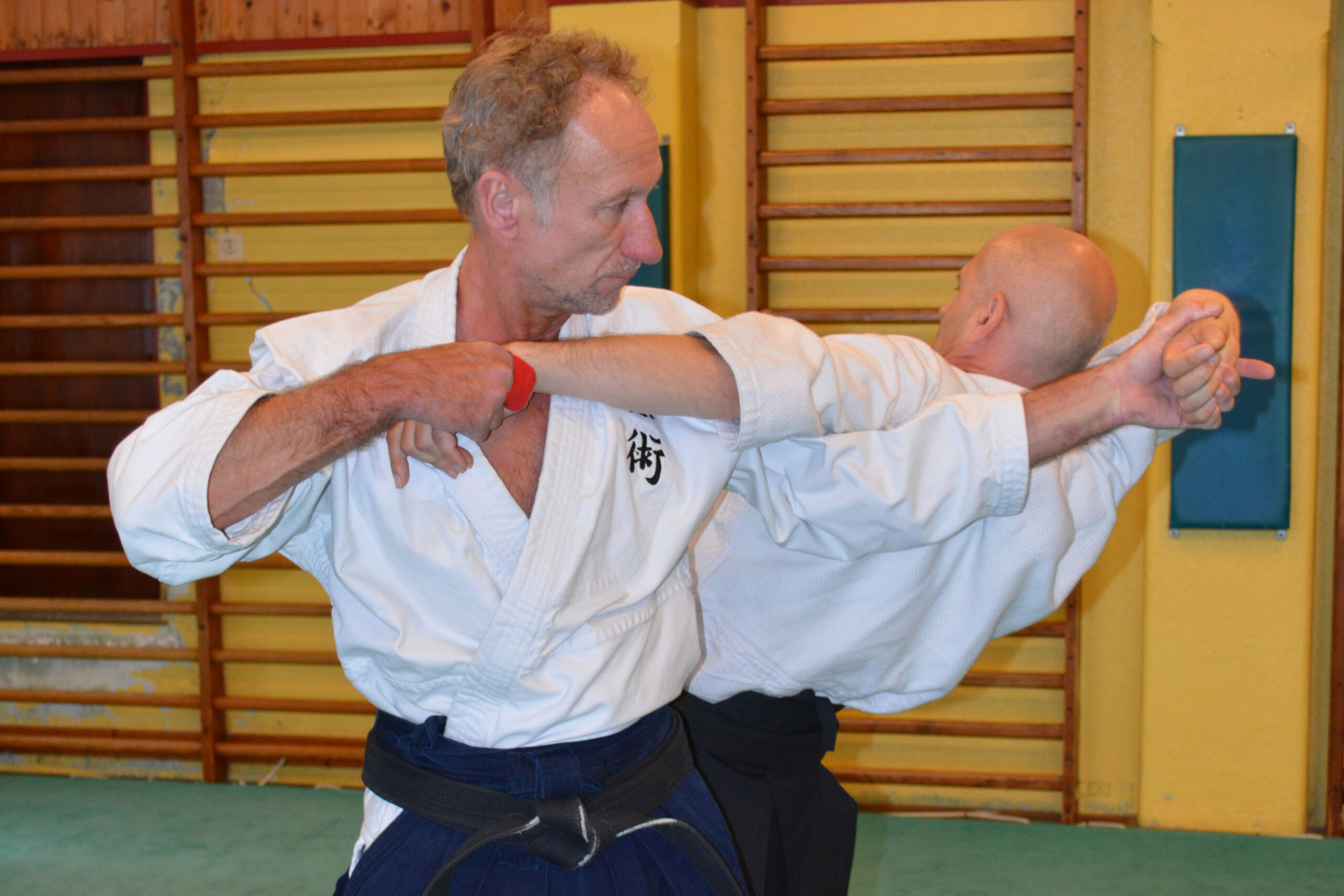
【AIKI JUJUTSU GYAKUTE-DO Series No.5】How you can learn Jujutsu properly
-
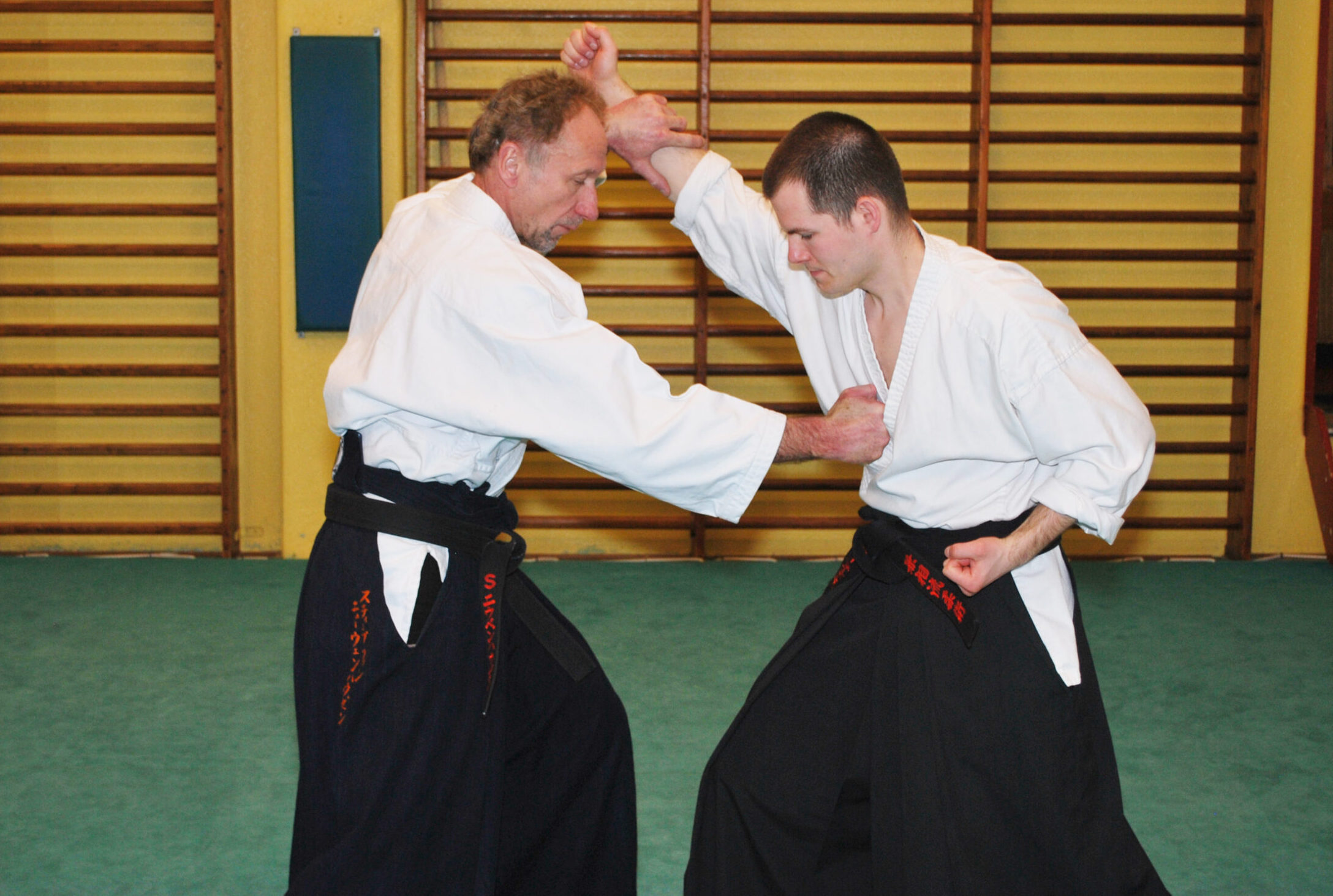
【AIKI JUJUTSU GYAKUTE-DO Series No.4】DAKEN-HO Hit and Kick KATA and AIKI
-
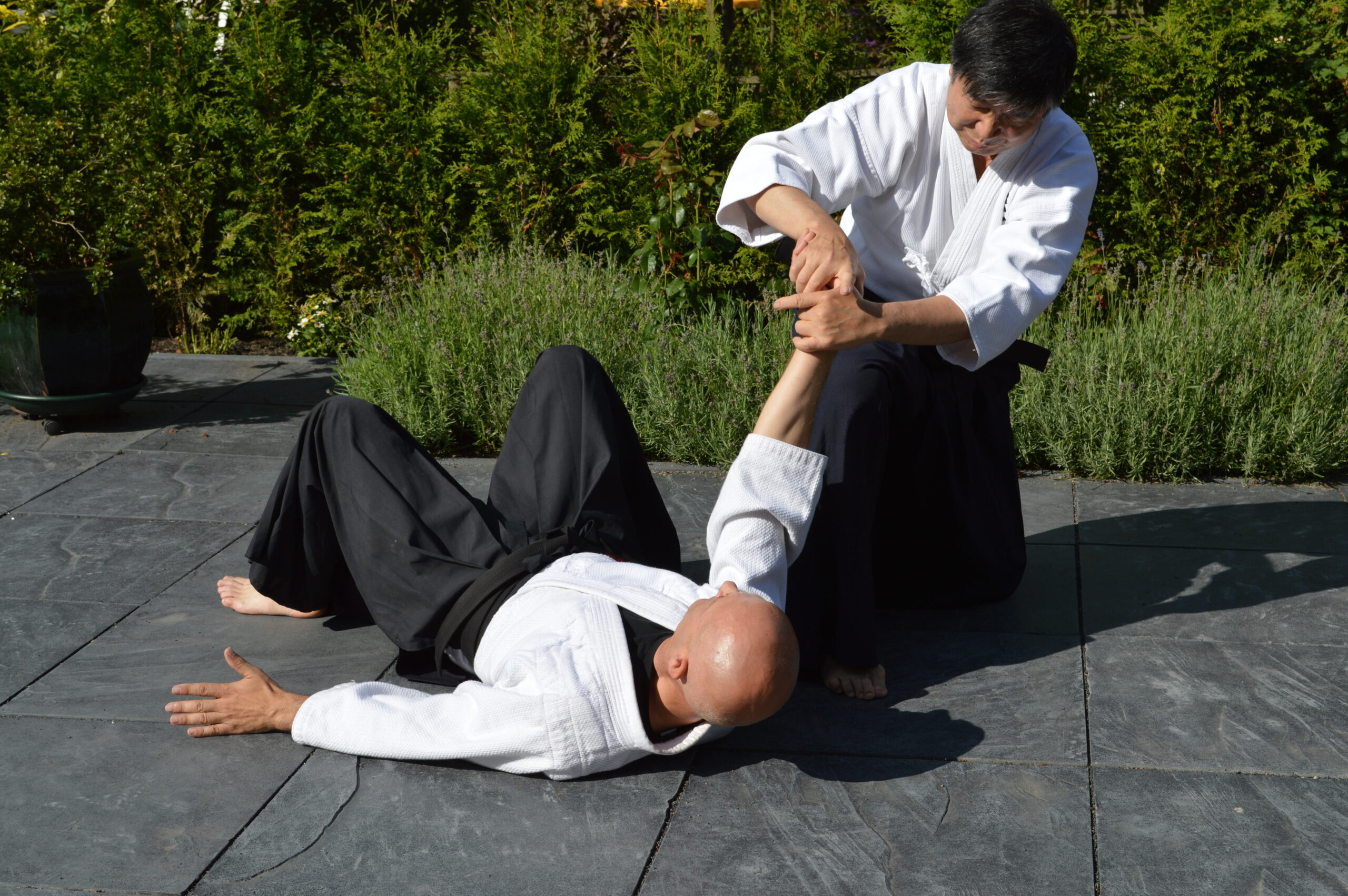
【AIKI JUJUTSU GYAKUTE-DO Series No.3】JUJUTSU WAZA, digest of FUDO
-
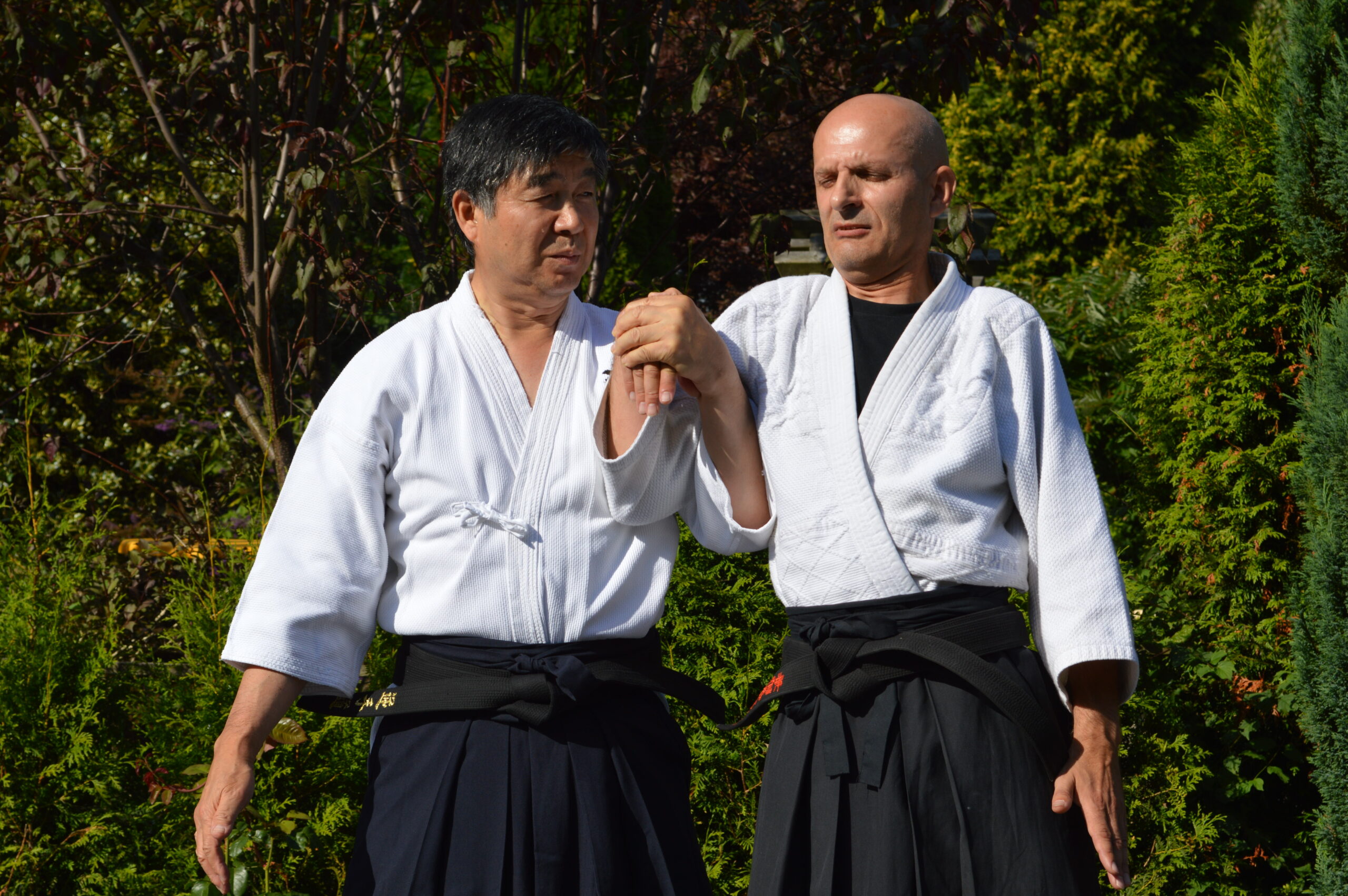
【AIKI JUJUTSU GYAKUTE-DO Series No.2】JUJUTSU WAZA, digest of NUKI, RENKO and NAGE
-
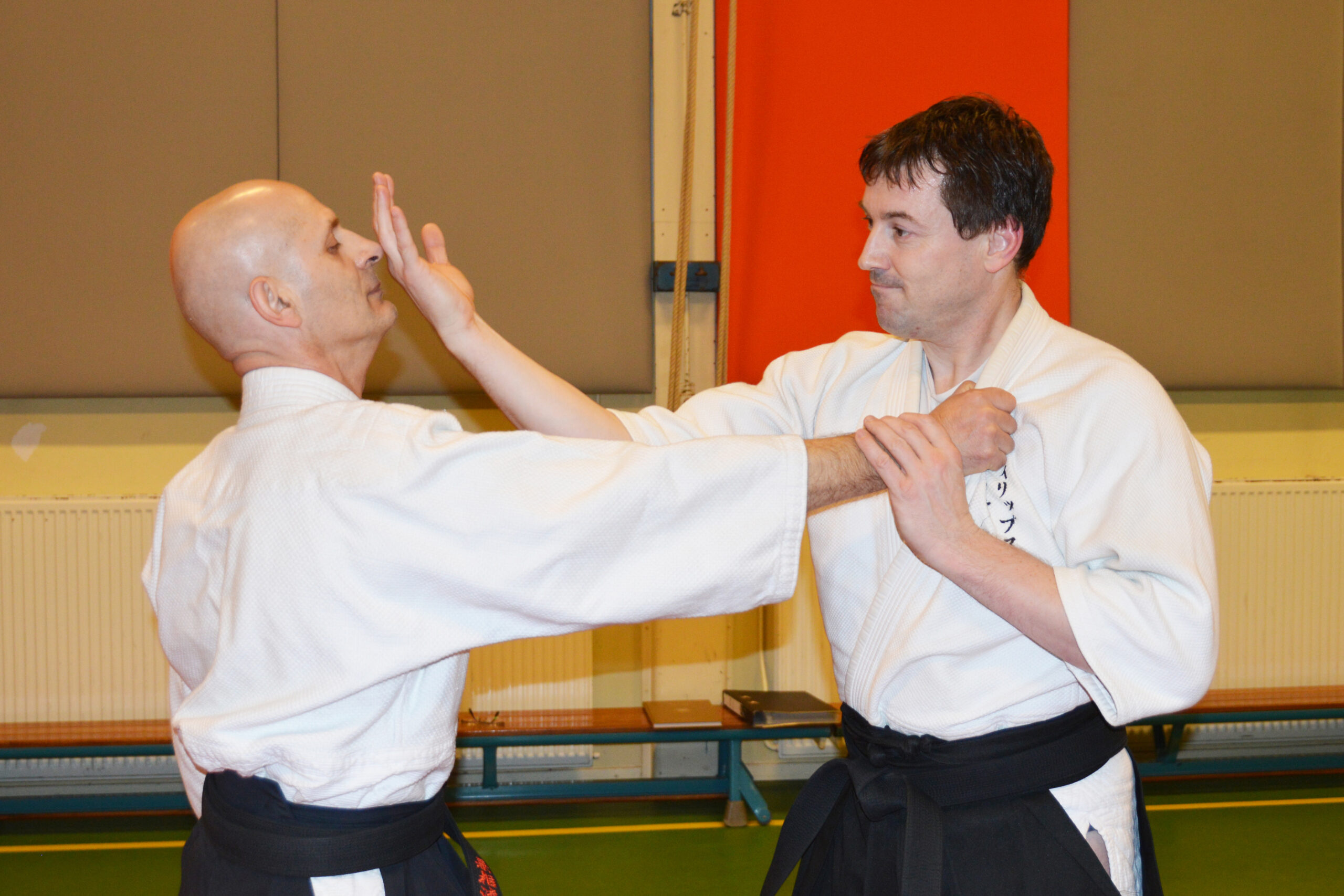
【AIKI JUJUTSU GYAKUTE-DO Series No.1】About GYAKUTE-DO and the digest of its basic techniques
-
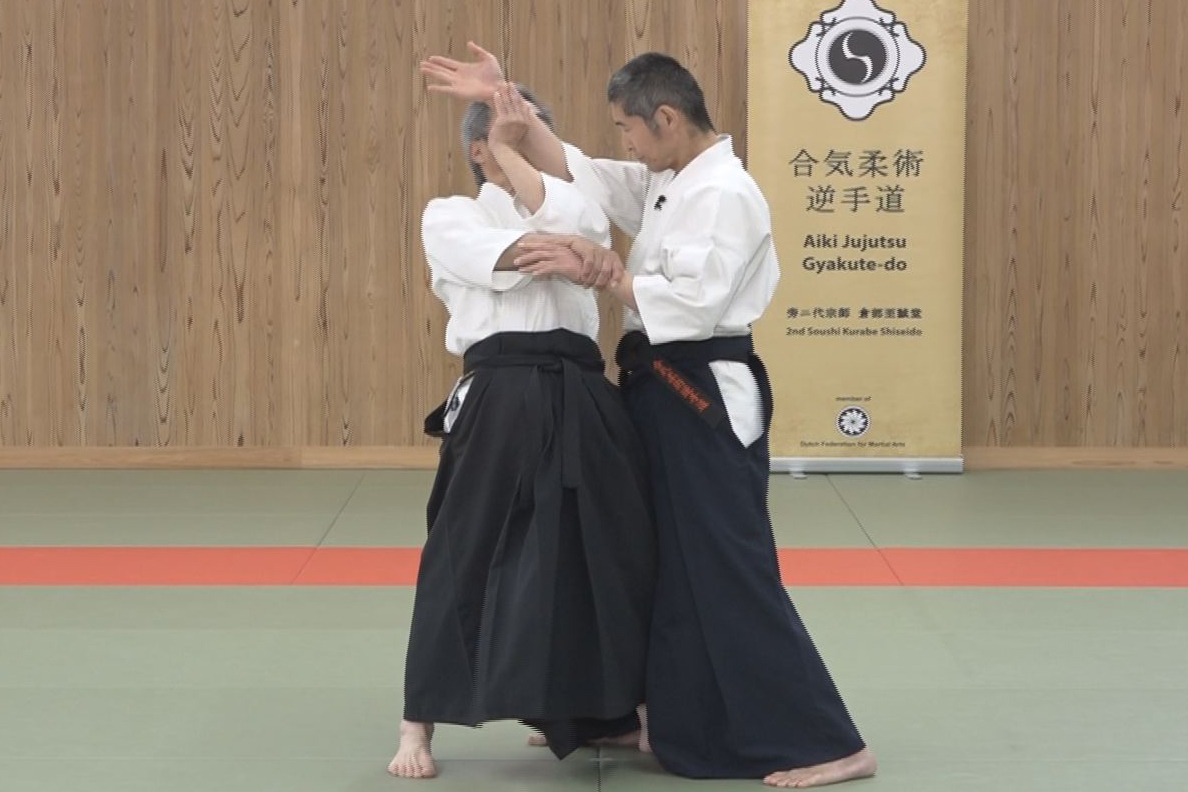
【AIKI Web Course Part 2】Lesson 24 With Comb. of Different Methods #2
-
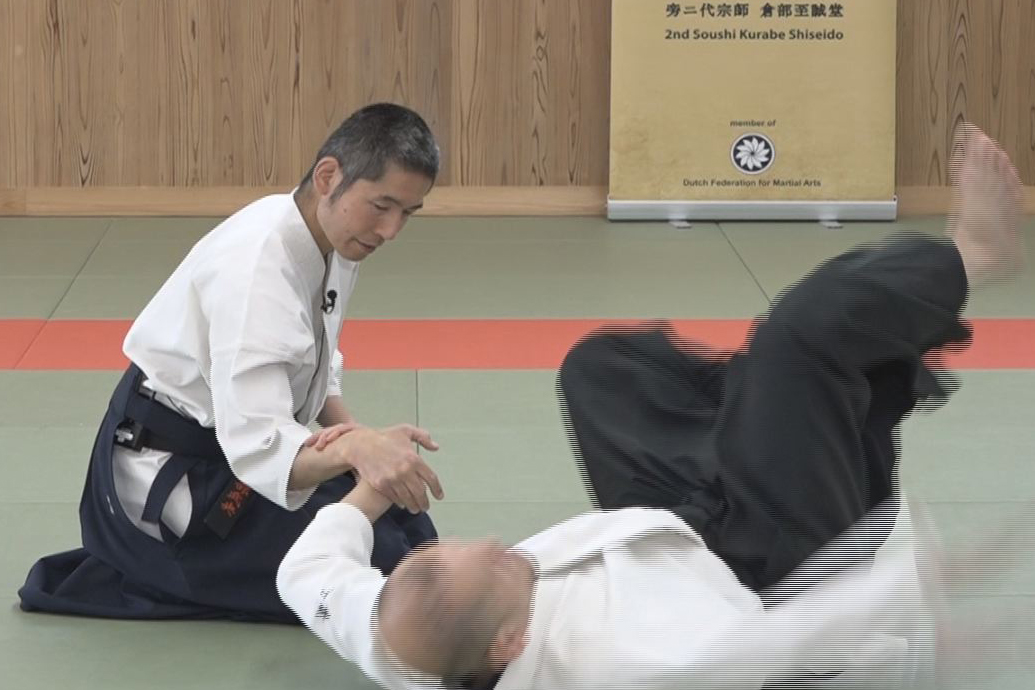
【AIKI Web Course Part 2】Lesson 23 With Comb. of Different Methods #1
-

【AIKI Web Course Part 2】Lesson 22 Advanced Tech. using F. E. method #2
-

【AIKI Web Course Part 2】Lesson 21 Advanced Tech. using F. E. method #1
-
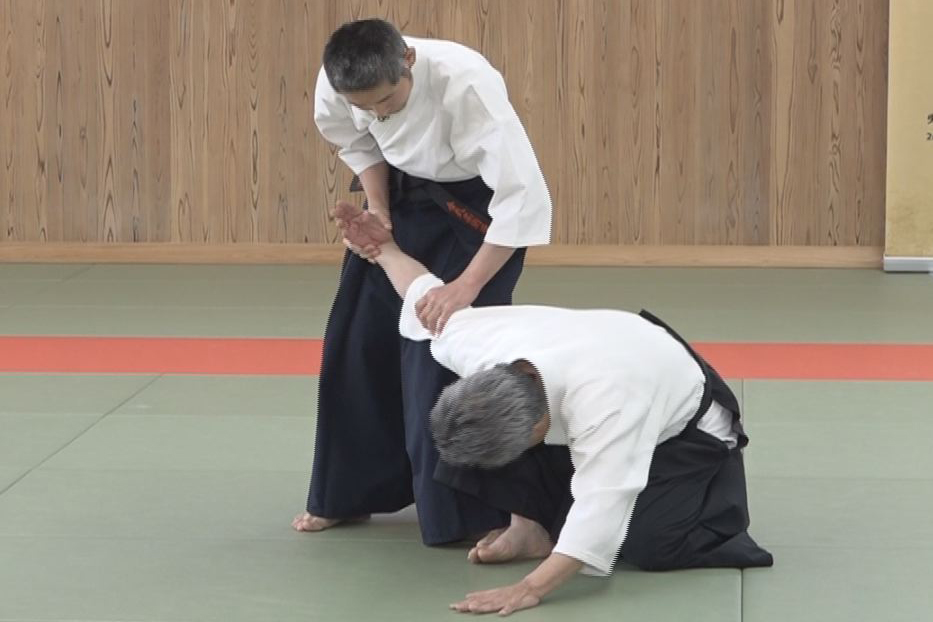
【AIKI Web Course Part 2】Lesson 20 Advanced tech. using T. F. T. #2
-
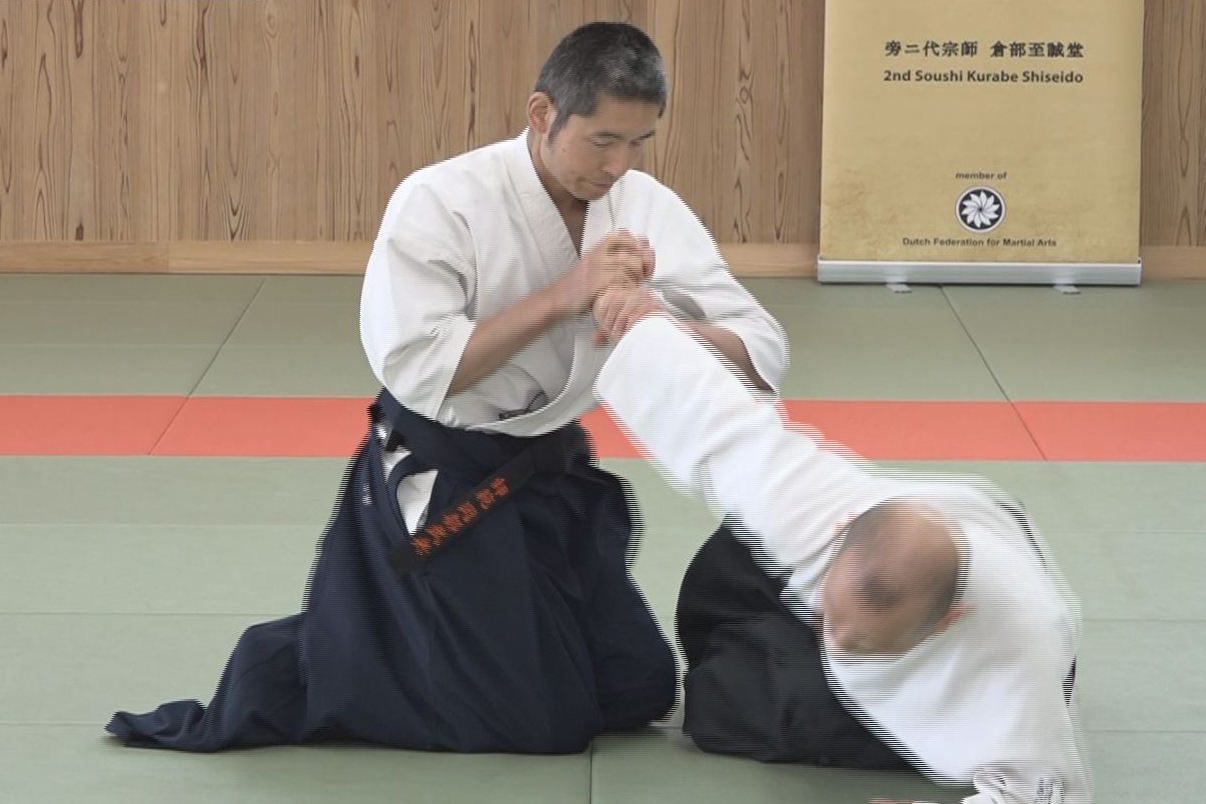
【AIKI Web Course Part 2】Lesson 19 Advanced tech. using T. F. T. #1
-
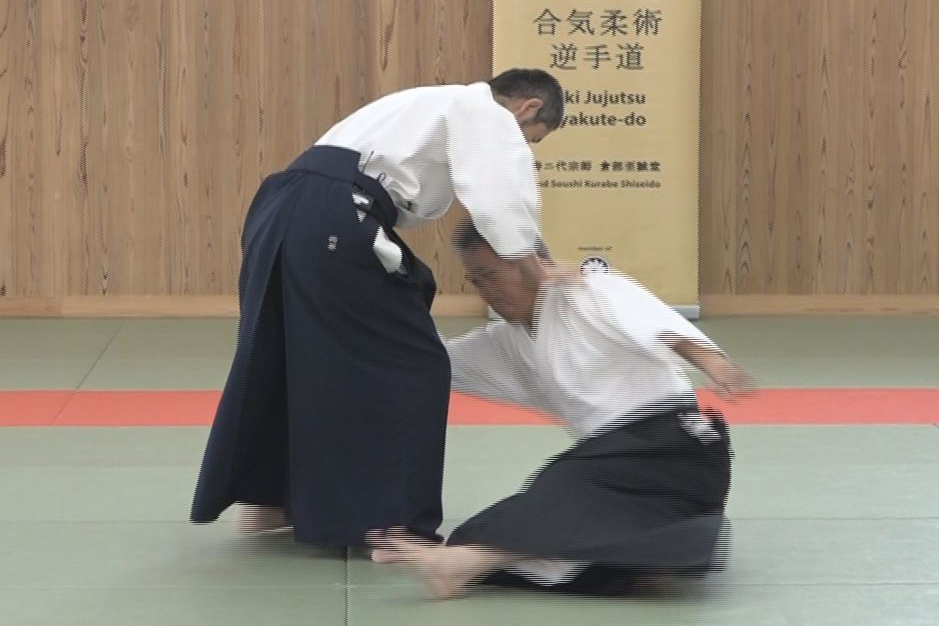
【AIKI Web Course Part 2】Lesson 18 Advanced tech. using AIKI Contact #2
-
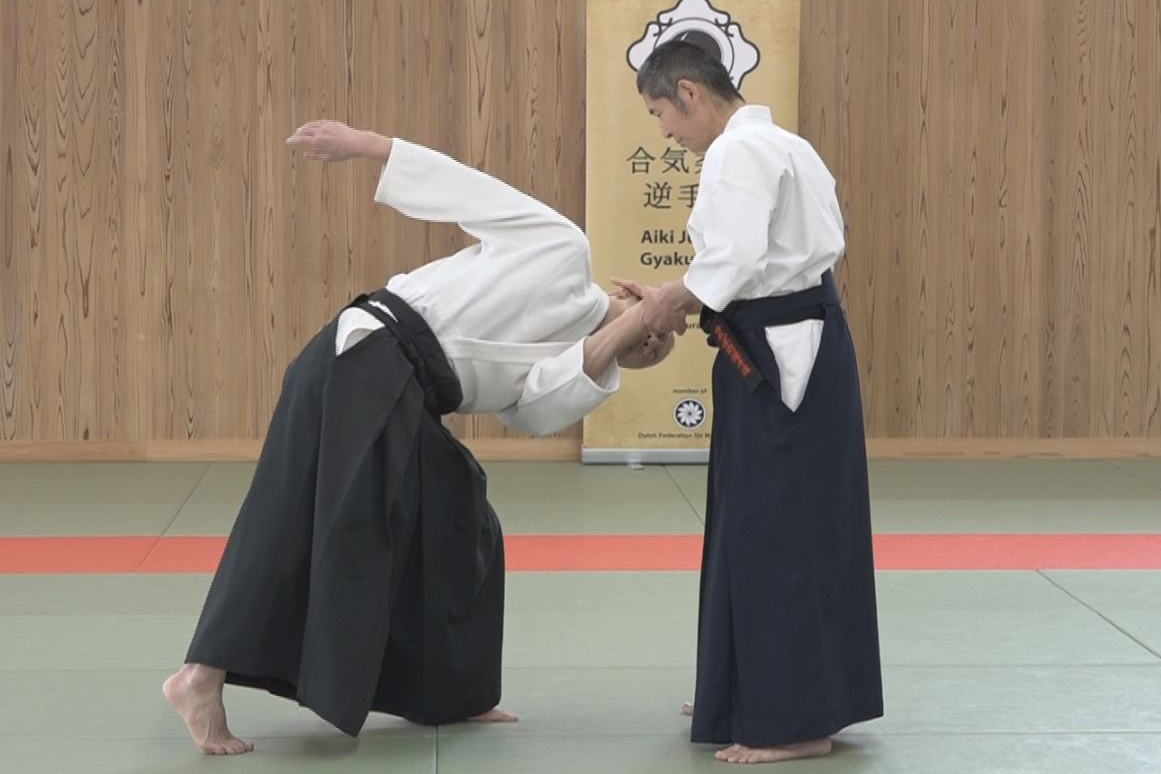
【AIKI Web Course Part 2】Lesson 17 Advanced tech. using AIKI Contact #1
-
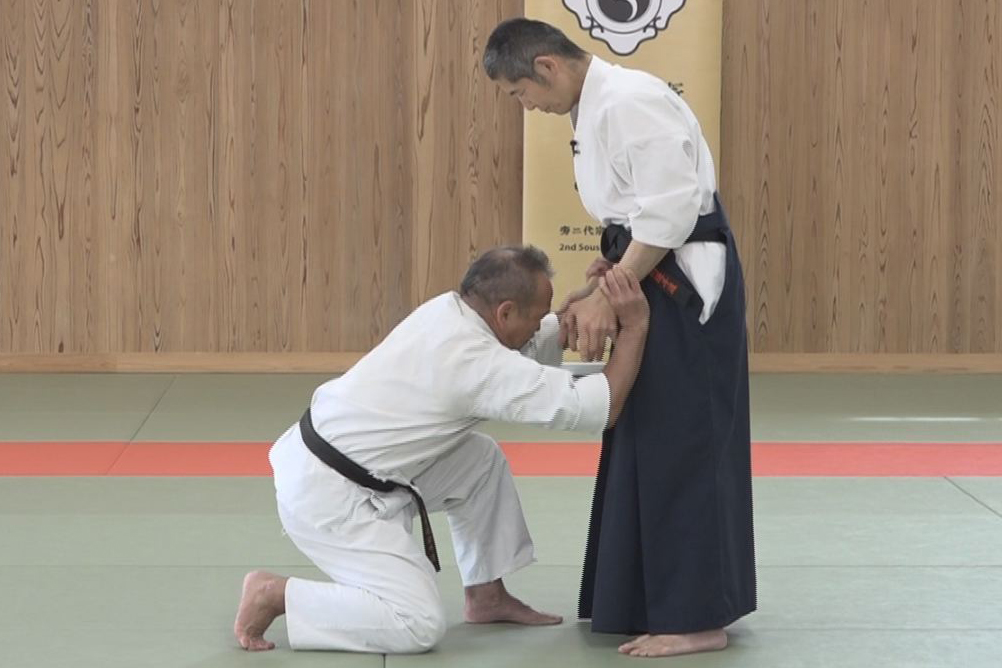
【AIKI Web Course Part 2】Lesson 16 Advanced tech. by Undetectable F.T. #2
-
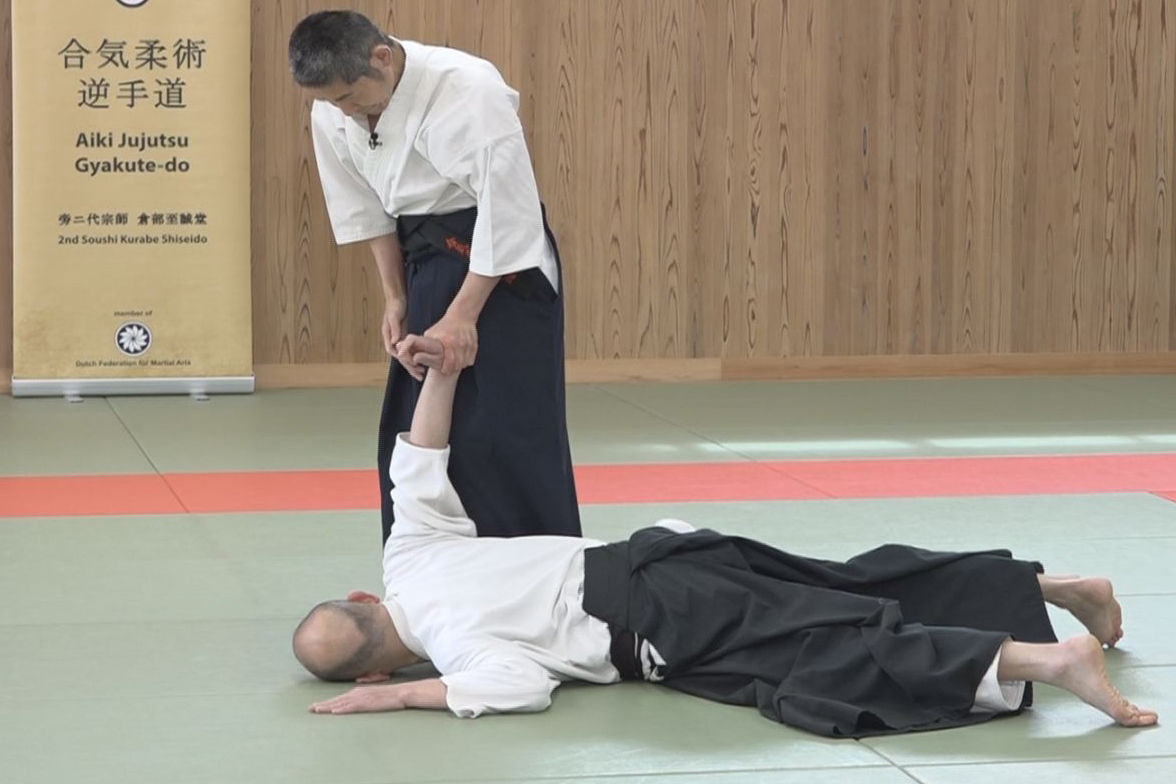
【AIKI Web Course Part 2】Lesson 15 – Advanced tech. by Undetectable F. T. #1
-
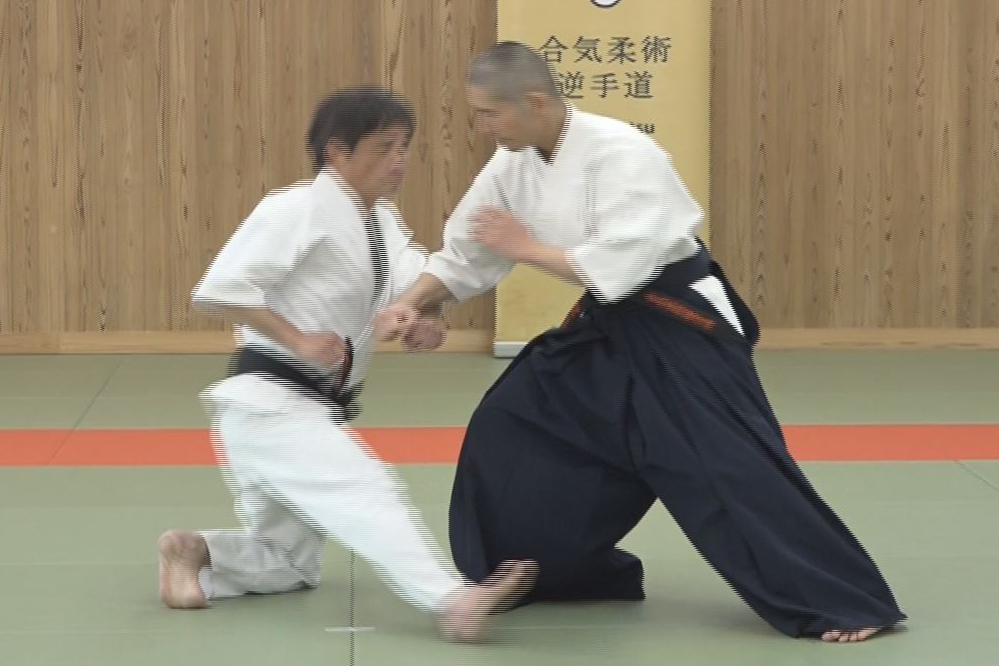
【AIKI Web Course Part 2】Lesson 14 – Advanced tech. by the Waving method #2
-
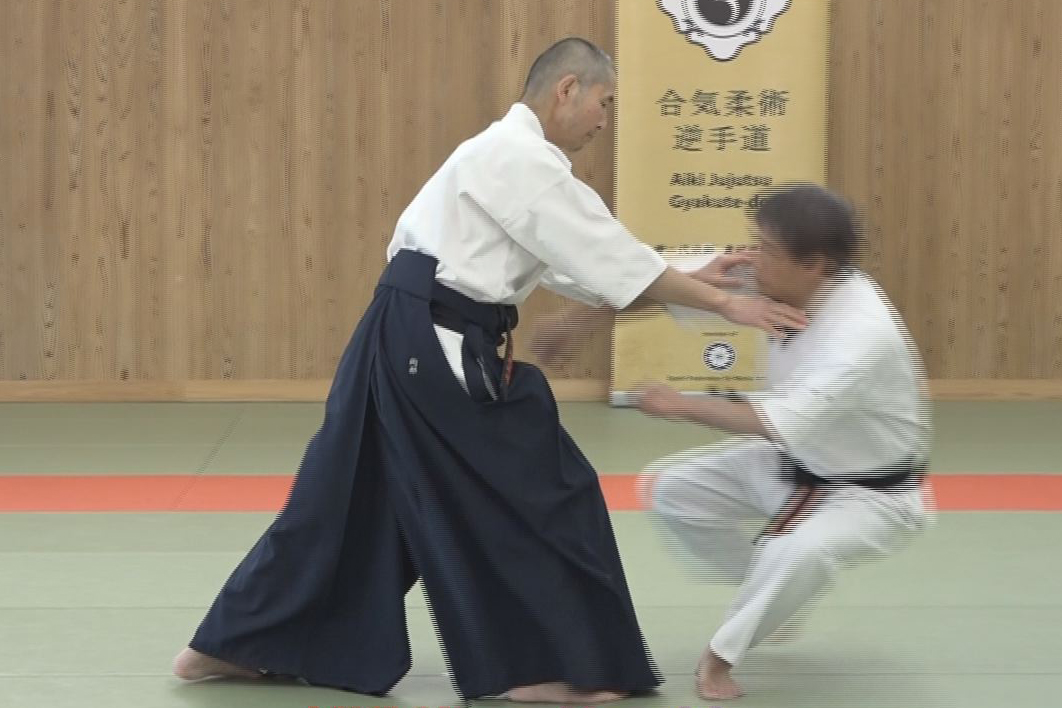
【AIKI Web Course Part 2】Lesson 13 – Advanced tech. by the Waving method #1
-
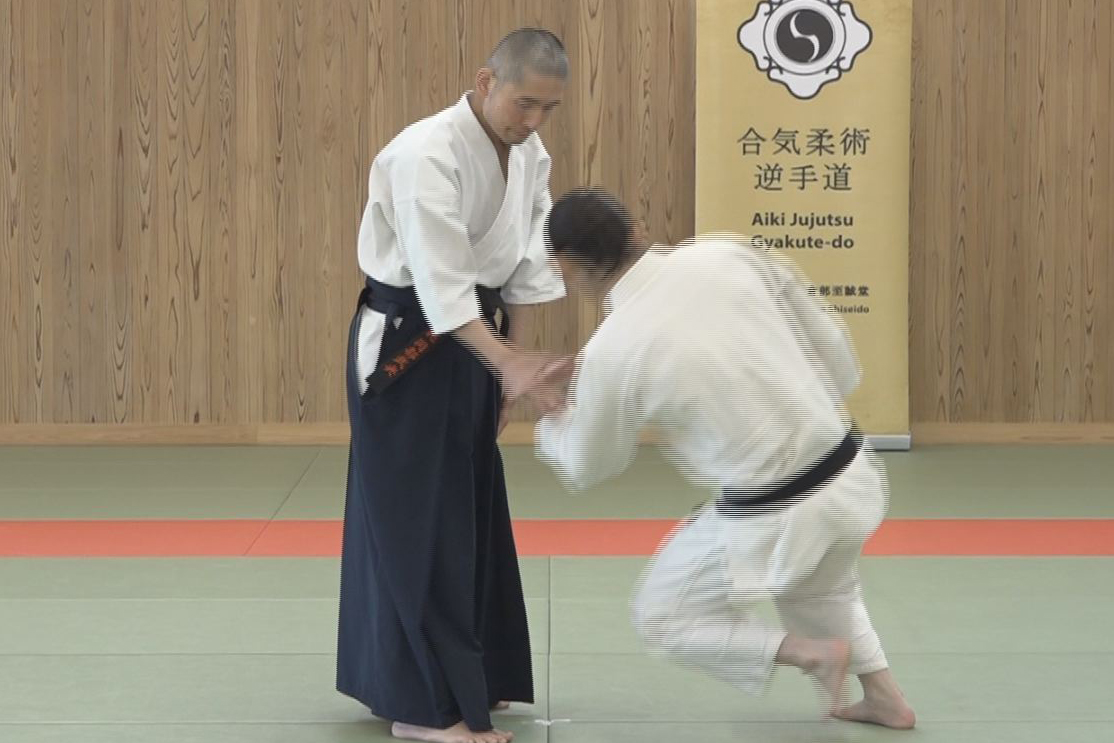
【AIKI Web Course Part 2】Lesson 12 – Gyaku-te by not Using Force nor AIKI
-
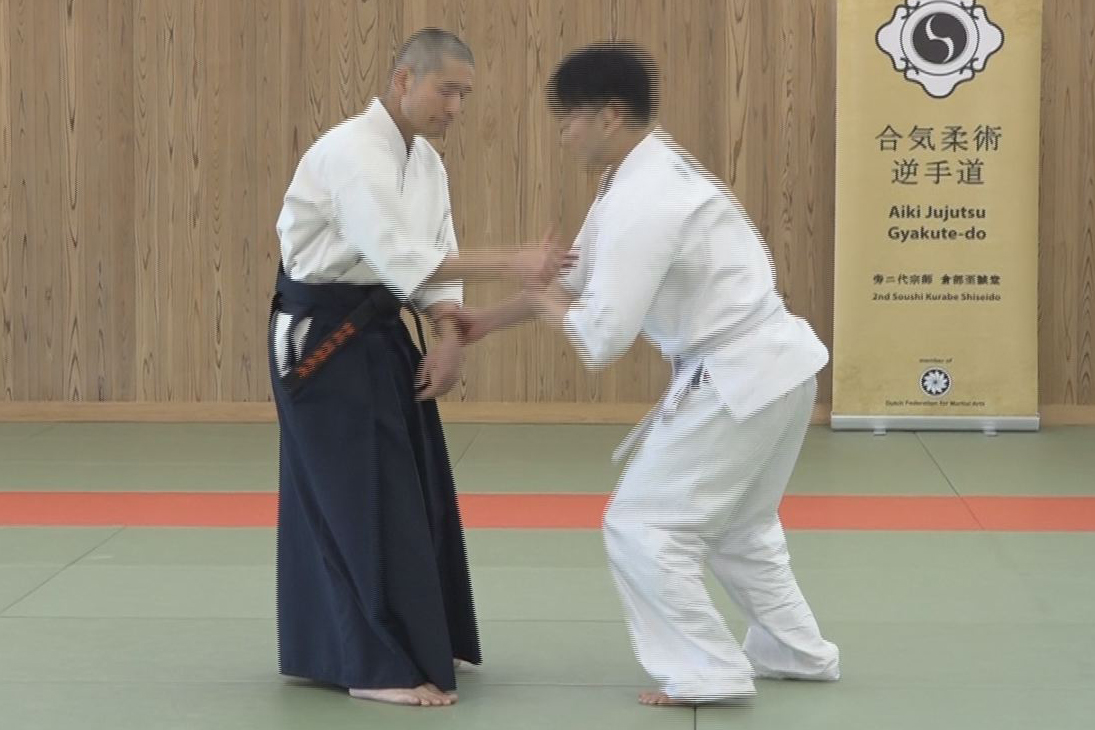
【AIKI Web Course Part 2】Lesson 11 – Gyaku-te Realized by the AIKI Method
-
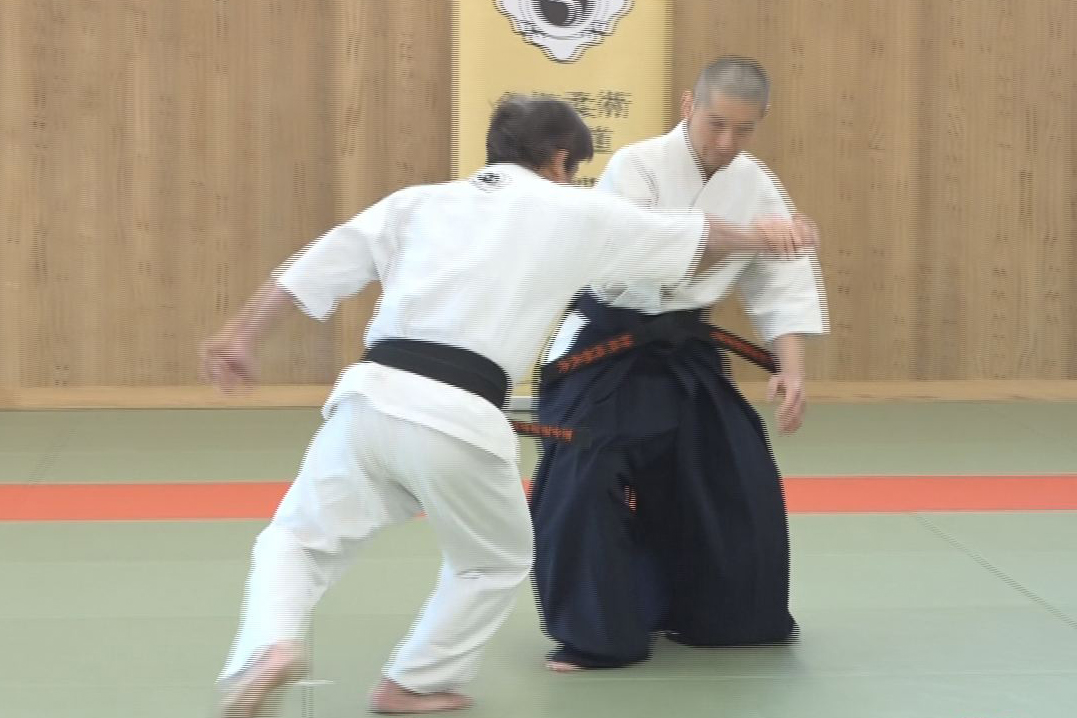
【AIKI Web Course Part 2】Lesson 10 – Application of Force Equilibrium method
-
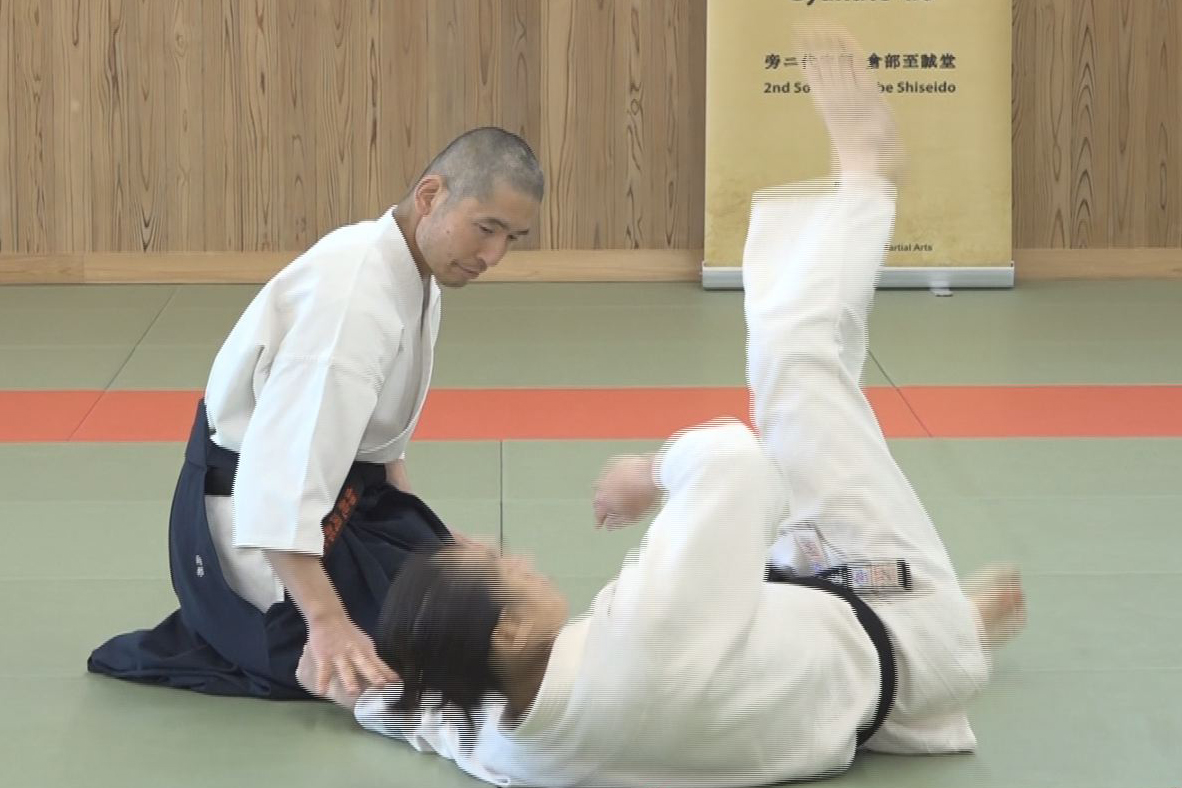
【AIKI Web Course Part 2】Lesson 9 – Force Equilibrium
-
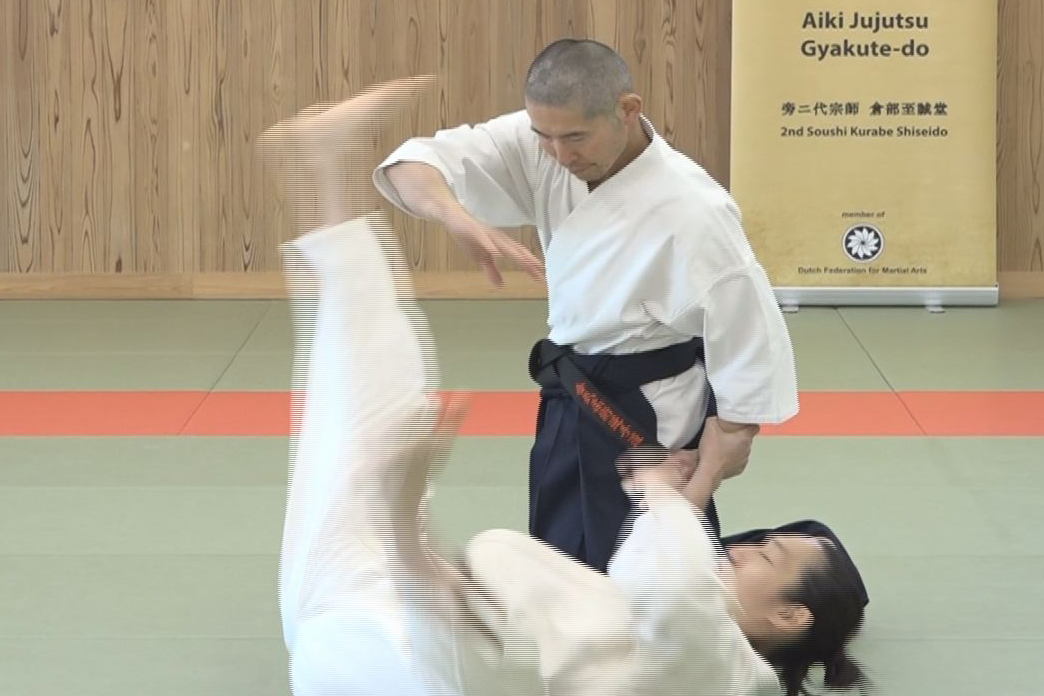
【AIKI Web Course Part 2】Lesson 8 – Application of Targeted Force Transfer
-
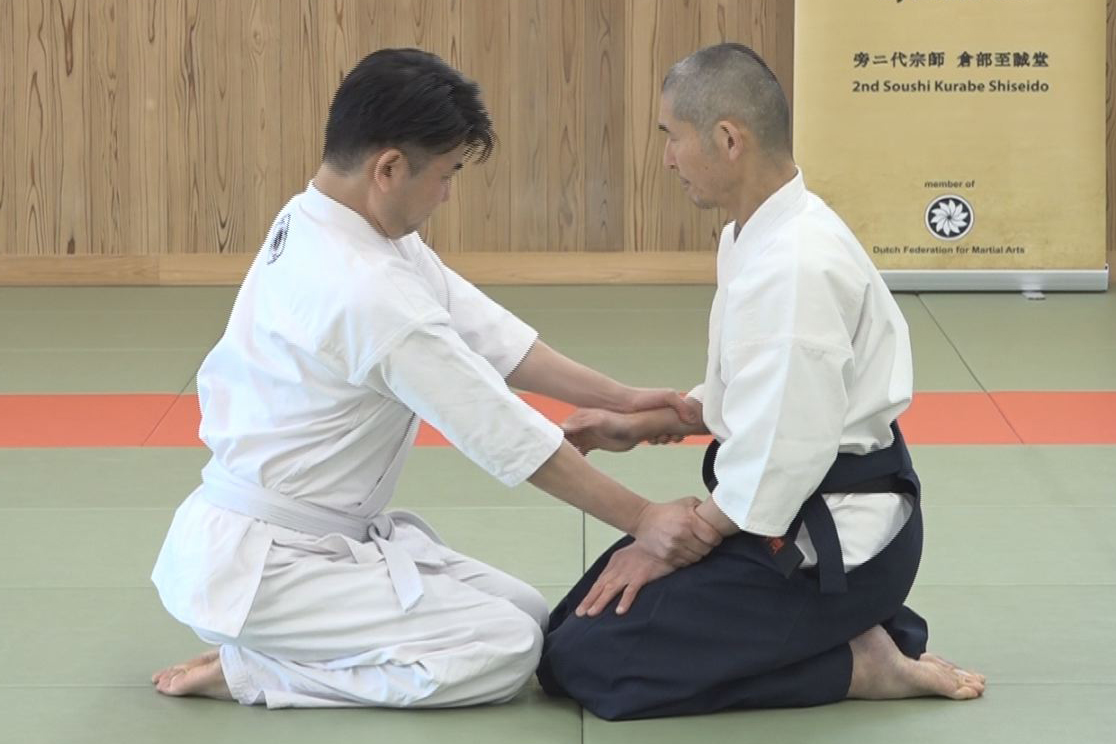
【AIKI Web Course Part 2】Lesson 7 – Targeted Force Transfer
-
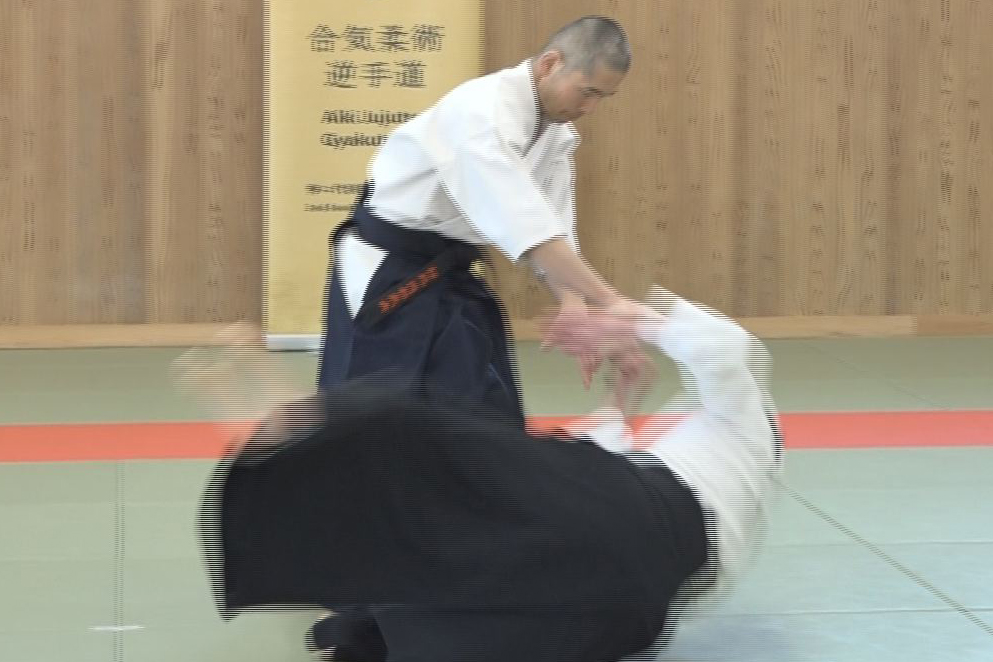
【AIKI Web Course Part 2】Lesson 6 – Application of AIKI Connection
-
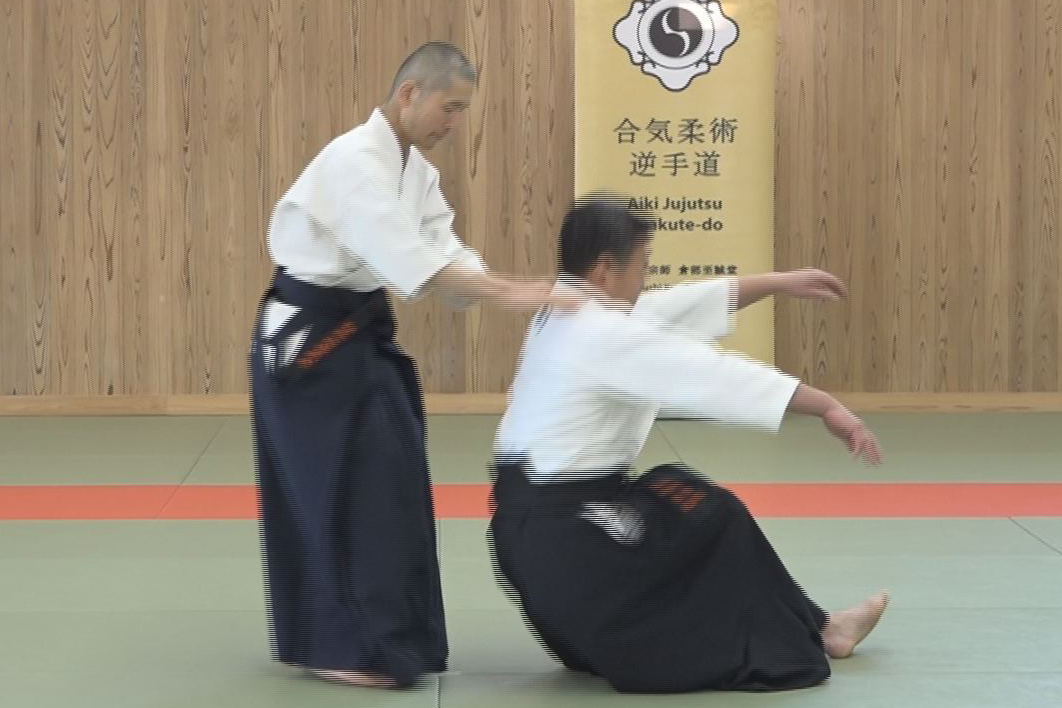
【AIKI Web Course Part 2】Lesson 5 – AIKI Connection
-
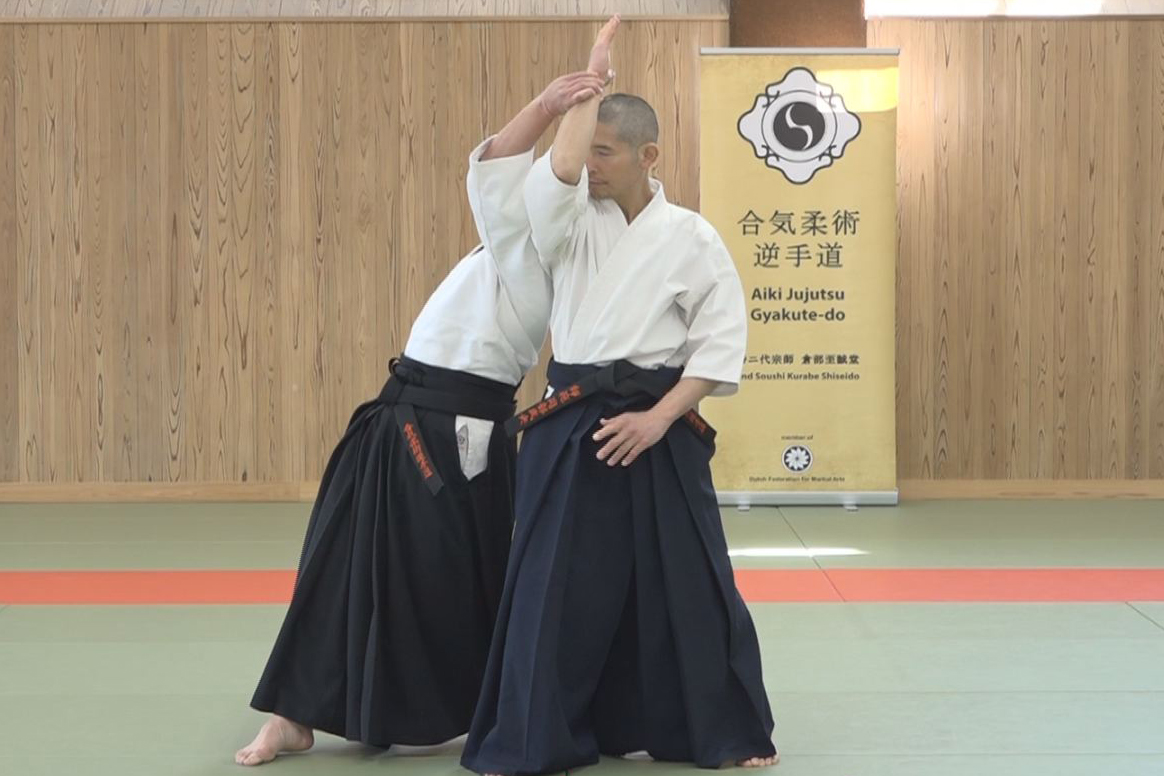
【AIKI Web Course Part 2】Lesson 4 – Application of Nondetectable Force Transfer
-
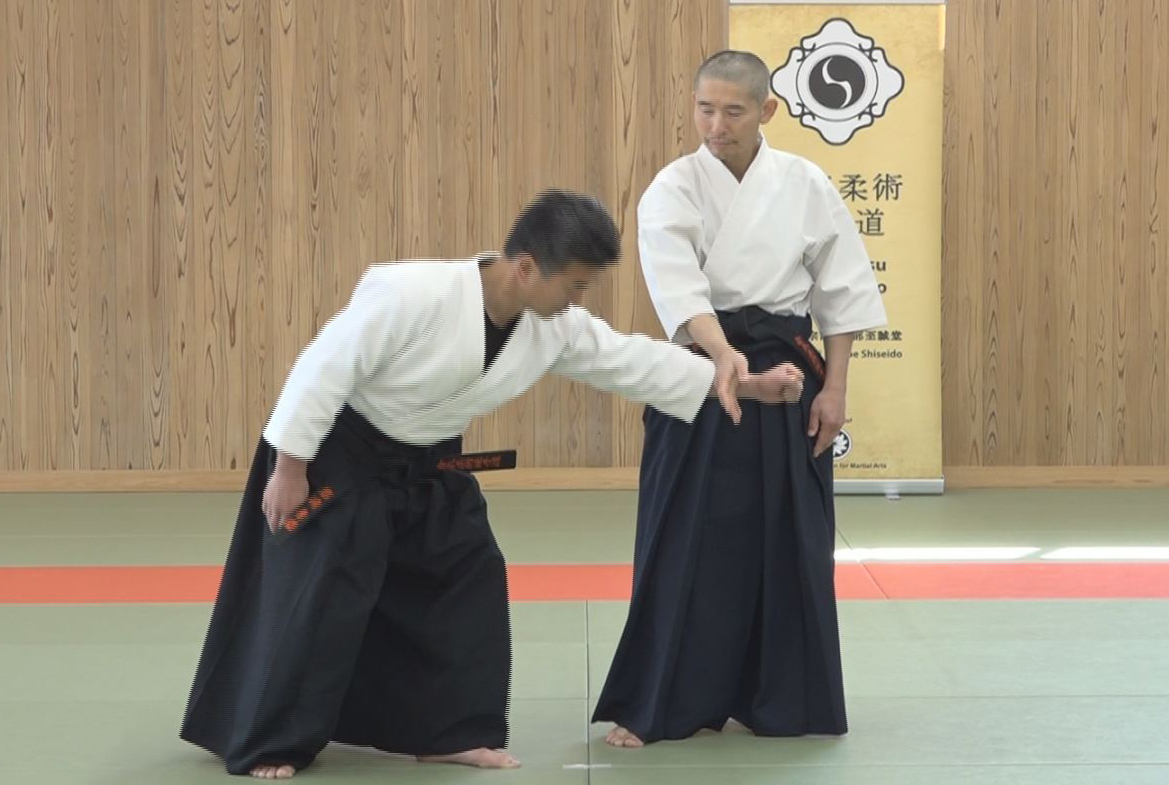
【AIKI Web Course Part 2】Lesson 3 – Explanation of Undetectable Force Transfer
-
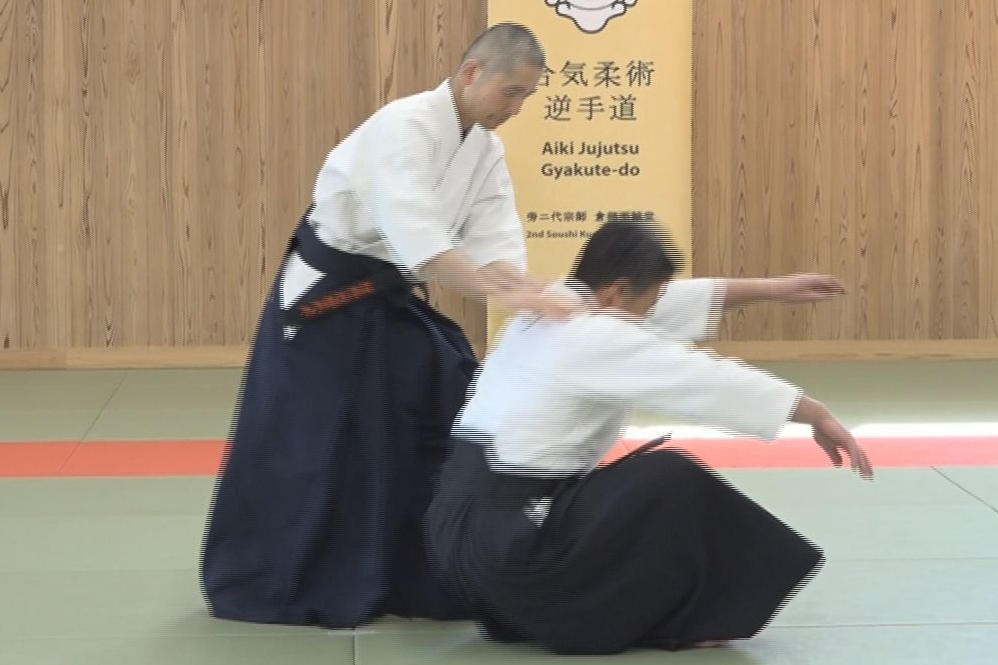
【AIKI Web Course Part 2】Lesson 2 – Application of Waving Method
-
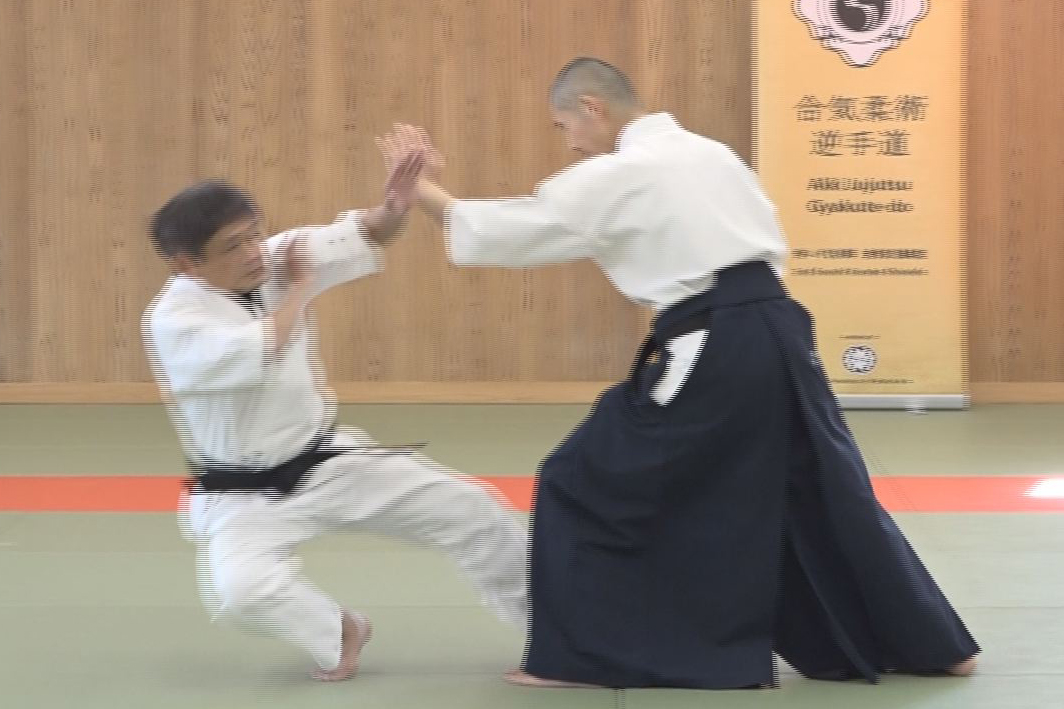
【AIKI Web Course Part 2】Lesson 1 – The Explanation of Waving Method
-
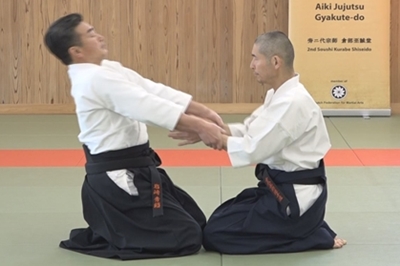
【AIKI Web Course Part 2】Introduction with video


